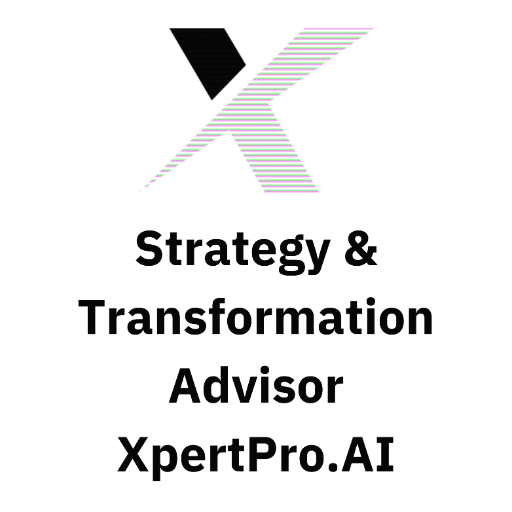Process Engineering Advisor-AI-powered process optimization tool
AI-driven solutions for process efficiency.
How to optimize a production process?
What strategies improve manufacturing efficiency?
How to implement advanced process simulation techniques?
What's the impact of process changes on the bottom line?
Related Tools
Load More
ISO 9001 Advisor
Expert in ISO 9001:2015 guidance and compliance

Solar Engineer Advisor
Expert in solar power station design & equipment, providing the latest info & advice

Chemical Engineering GPT
Assists with chemical engineering topics, from basics to advanced.

Chemical Engineering Design Tutor
Specialized tutor in Chemical Engineering Design for upper division and graduate students.

Data Engineer Consultant
Guides in data engineering tasks with a focus on practical solutions.

Strategy & Transformation Advisor | XpertPro.AI
Navigating Futures: Your Compass for Strategic Transformation
20.0 / 5 (200 votes)
Introduction to Process Engineering Advisor
The Process Engineering Advisor is a specialized role designed to enhance the efficiency, quality, and safety of manufacturing and production processes across industries. It integrates expertise in process design, optimization, and risk management to deliver solutions that streamline operations, reduce waste, and maximize productivity. By focusing on both the technical and operational aspects of production, this advisor supports continuous improvement in manufacturing settings. For example, if a chemical plant is experiencing a bottleneck due to inefficient heat transfer in a distillation column, the Process Engineering Advisor would analyze the system, recommend changes (like retrofitting the column with better heat exchangers), and assess the potential risks of these modifications. The goal is to boost output while maintaining regulatory compliance and safety standards.

Key Functions of the Process Engineering Advisor
Process Analysis and Optimization
Example
A pharmaceutical company is facing challenges with batch variability during the production of a drug. The Process Engineering Advisor would conduct a thorough analysis of each stage of the production line, examining factors such as mixing times, temperatures, and raw material quality. The advisor could then implement Six Sigma techniques to reduce variation and improve yield.
Scenario
In the above case, Six Sigma methods like DMAIC (Define, Measure, Analyze, Improve, Control) could be applied to systematically identify and resolve inefficiencies, ensuring that each batch meets consistent quality standards.
Risk Assessment and Safety Management
Example
In a refinery, a new piece of equipment is being installed, but there is a concern about potential process hazards. The Process Engineering Advisor would carry out a HAZOP (Hazard and Operability Study) to assess the risks involved in the installation and operational phases.
Scenario
This HAZOP would focus on identifying failure modes, analyzing their consequences, and suggesting mitigating measures. The advisor may suggest control system improvements or operational changes to ensure that the equipment functions safely under various conditions.
Implementation of New Technologies
Example
A food processing plant is considering the adoption of Industry 4.0 technologies to enhance real-time monitoring of its production processes. The Process Engineering Advisor would guide the integration of IoT sensors into the production line, enabling better data collection and predictive maintenance.
Scenario
By introducing smart sensors that provide real-time data on temperature, pressure, and flow rates, the advisor helps the company move towards predictive maintenance. This reduces downtime by identifying potential equipment failures before they occur, leading to better productivity.
Ideal Users of Process Engineering Advisor
Manufacturing Engineers and Plant Managers
These professionals are directly responsible for the day-to-day operation and efficiency of production lines. They benefit from the Process Engineering Advisor's ability to diagnose process inefficiencies, propose optimization strategies, and reduce waste. For example, a plant manager at a chemical manufacturing site would use the advisor's expertise to troubleshoot inefficiencies in material flow or energy use, leading to increased throughput.
Safety and Compliance Teams
Safety officers and regulatory compliance managers in industries like petrochemicals, pharmaceuticals, and food processing benefit from the advisor's expertise in risk management and regulatory standards. For instance, a compliance officer in a pharmaceutical company would work with the advisor to ensure that production processes meet GMP (Good Manufacturing Practices) standards, preventing costly regulatory violations or product recalls.

Guidelines for Using Process Engineering Advisor
Visit aichatonline.org for a free trial
No login or ChatGPT Plus subscription is required. You can begin using the Process Engineering Advisor instantly for basic queries and guidance.
Define your objective
Clarify the goal you want to achieve, whether it’s optimizing a production process, improving efficiency, conducting risk assessments, or solving specific engineering problems.
Input relevant data
Provide relevant data or context about your process. This could include performance metrics, process details, challenges, or requirements for improvements.
Use suggested strategies
Leverage the recommendations provided by the advisor, which might include process improvements, simulation models, or risk assessment methods tailored to your inputs.
Monitor and evaluate outcomes
After implementing changes, continue monitoring your processes to assess the impact and refine further based on the advisor’s iterative insights.
Try other advanced and practical GPTs
Training Material Design Advisor
AI-powered Training Material Creation
Material Science Advisor
AI-driven material science solutions.
IT Audit Advisor
AI-powered IT audit and compliance.
International Tax Advisor
AI-powered global tax expertise
Network Architecture Advisor
AI-driven insights for optimal networks
Financial Data Analysis Advisor
AI-powered financial insights for better decisions.
Electronics Advisor
Expert Electronics Advice, Powered by AI.
Mergers & Acquisitions Advisor
AI-powered M&A insights for smart growth.
ESG Report Wizard 🌱✍️
AI-powered ESG Reporting Simplified

EverQuestionnaire
AI-powered EverQuest game companion

VisionScribe
AI-powered alt text and content generator.

Neo Tokyo Citizens IRL
Bring your Neo Tokyo Citizen to life with AI-powered transformation.

- Risk Assessment
- Process Optimization
- Efficiency Boost
- Compliance Management
- Lean Manufacturing
Common Questions About Process Engineering Advisor
What industries can benefit from Process Engineering Advisor?
Process Engineering Advisor is ideal for chemical manufacturing, pharmaceuticals, oil and gas, food processing, and any industry requiring process optimization, risk management, and efficiency improvements.
How does Process Engineering Advisor improve process efficiency?
It analyzes current production workflows and provides suggestions for eliminating inefficiencies, reducing waste, optimizing resource use, and improving overall performance through Lean and Six Sigma principles.
Can I use Process Engineering Advisor for compliance purposes?
Yes, it helps ensure that processes comply with regulatory standards like ISO 9001, OSHA, PSM, and GMP by analyzing safety protocols and operational guidelines against industry standards.
How does Process Engineering Advisor handle data privacy?
Data is processed confidentially, and sensitive information is safeguarded. Users have control over data input, and there is an option to turn off chat history and data sharing for enhanced privacy.
What kind of process data is required for optimal advice?
To provide accurate recommendations, the advisor needs detailed process data such as production rates, material flow, energy usage, and any existing bottlenecks or inefficiencies in the system.